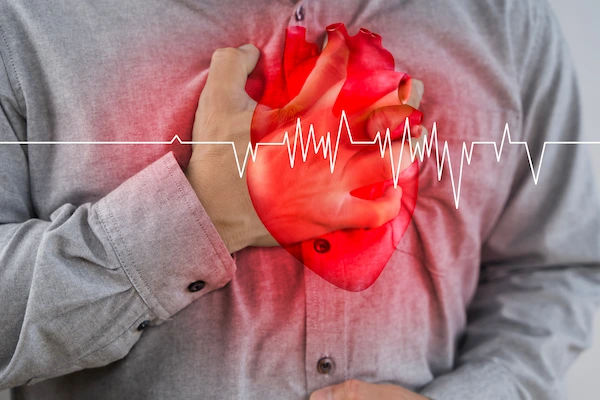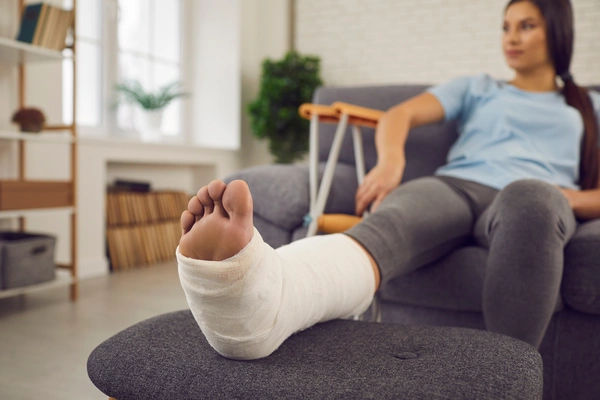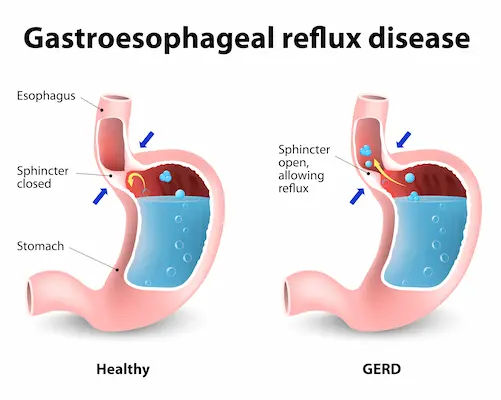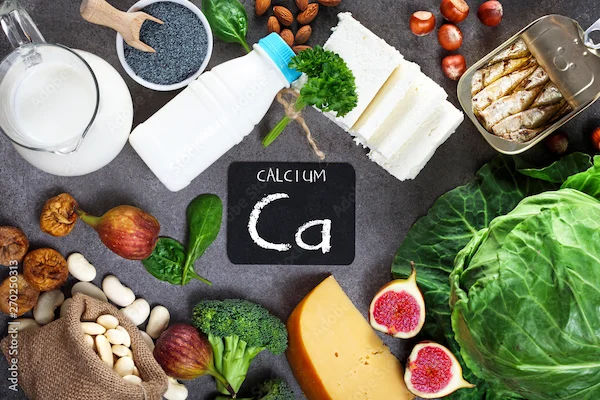Your Ultimate Guide to Saying No to Tobacco and Reclaiming Your Health
Your ultimate guide to saying no to tobacco and reclaiming your health. Discover effective refusal strategies, psychological insights, and the life-changing benefits of a tobacco-free lifestyle.

Written by Dr. Rohinipriyanka Pondugula
Reviewed by Dr. Siri Nallapu MBBS
Last updated on 13th Jan, 2026

Saying "no" to tobacco is one of the most powerful decisions you can make for your well-being. Yet, in a moment of social pressure or personal stress, that simple word can feel incredibly difficult to utter. This isn't just about willpower; it's about strategy, understanding, and empowerment. Whether you're a non-smoker aiming to stay that way or someone looking to quit, knowing how to say no to tobacco effectively is a critical life skill. This guide goes beyond the basic advice, offering you a deep dive into the "why," the "how," and the "what's next." We'll equip you with practical verbal tools, psychological insights, and a clear view of the profound health benefits that await you on the other side of refusal. Get ready to build your confidence and arm yourself with everything you need to uphold your choice for a healthier life.
Understanding the Why: The Powerful Reasons to Refuse Tobacco
Before you can confidently refuse, you must fortify your resolve with knowledge. Understanding the multifaceted impact of tobacco provides the unwavering foundation for your "no."
The Immediate Health Toll: What Happens Inside Your Body
Many believe the damage from tobacco use is a distant problem. In reality, the assault begins within seconds. The moment smoke is inhaled, nicotine constricts blood vessels, raising blood pressure and heart rate. Carbon monoxide from the smoke binds to haemoglobin in your red blood cells more easily than oxygen, starving your organs and muscles of the vital oxygen they need. This leads to almost immediate shortness of breath during light activity and reduces your overall stamina. This isn't a future risk; it's a present reality that impacts your daily energy and performance.
The Long-Term Risks: Cancer, Heart Disease, and Beyond
The long-term consequences are where the most severe damage manifests. According to the World Health Organization (WHO), tobacco use is a primary risk factor for at least 16 types of cancer, with lung cancer being the most prominent. However, it's not just the lungs. Carcinogens from tobacco travel through your bloodstream, contributing to cancers of the mouth, throat, oesophagus, stomach, pancreas, liver, colon, kidney, and bladder. Furthermore, it is a leading cause of cardiovascular disease, including heart attacks and strokes, by damaging the lining of your arteries and promoting plaque build-up. Chronic obstructive pulmonary disease (COPD), a debilitating condition that makes breathing increasingly difficult, is overwhelmingly caused by smoking.
Beyond Health: The Financial and Social Cost of Tobacco
The cost of a tobacco habit is staggering. A pack-a-day smoker can easily spend over ₹5,000 per month—that’s ₹60,000 a year going up in smoke. Imagine what that money could otherwise fund: holidays, investments, or education. Socially, tobacco use leads to stained teeth, persistent bad breath, and the smell of smoke that clings to hair and clothes, which can be a social turn-off. The social stigma and increasing restrictions on smoking in public places also mean users are often isolated, stepping outside alone for a fix.
Mastering the Art of Refusal: Practical Strategies to Say No
When offered a cigarette or a pinch of chewing tobacco, you need a toolkit of responses ready to deploy. The best strategy depends on the situation and your personality.
The Direct Approach: Simple and Clear "No" Statements
This is the most powerful method. A firm, clear, and polite "No, thank you" is often all that is needed. You don't owe anyone an explanation. Other direct phrases include:
- "I don't smoke."
- "I'm trying to stay healthy, so I'll pass.
- "No, it's not for me."
The key is to say it with confidence and without hesitation. Making eye contact reinforces your sincerity.
The Indirect Approach: Excuses and Deflections That Work
If a direct refusal feels too confrontational, especially with acquaintances or superiors, a white lie or deflection can be effective. These are excellent ways to say no to cigarette offers without creating awkwardness.
- "Thanks, but I've just eaten/I'm about to eat."
- "I'm actually getting over a cold, and it bothers my throat."
- "I have to run in a bit, need to keep my breath!"
- Simply holding a drink: "I'm good with this, thanks!"
Using "I" Statements to Own Your Decision
This technique is powerful against persistent peer pressure because it focuses on your personal choice and is hard to argue against.
- "I've decided I feel better when I don't smoke."
- "I'm making some healthy changes for myself, and this is part of it."
- "I don't like the way it makes me feel afterwards."
This makes your refusal about your values and decisions, not their offering, which can defuse tension.
Navigating Social Situations and Peer Pressure
Social settings are the primary battleground for how to deal with smoking peer pressure. A pre-planned strategy is your best defence.
Handling Pressure from Friends and Colleagues
True friends will respect your boundaries. If someone continues to pressure you after a clear refusal, it's okay to be more assertive. You can say, "I've said I don't want to. I'd appreciate it if you'd respect my decision." If it's a colleague, you might blame a health kick or training for a sports event. Often, the pressure is perceived rather than real; most people are too wrapped up in their own habits to care deeply about yours.
Strategies for Parties, Bars, and Work Breaks
Anticipate triggers. If you're at a party where people will be smoking, have a non-alcoholic drink in your hand, stick close to non-smoking friends, or even volunteer to be the designated driver—it's a perfect, unimpeachable excuse. During work breaks, instead of joining the smoking group, suggest a quick walk with another non-smoking colleague or use the time to make a personal phone call.
Scripting Your Response: What to Say in the Moment
Rehearse your lines. Having a go-to phrase memorised eliminates the panic and hesitation that can lead to relapse. Choose one from the lists above that feels most natural to you and practise it. The more you say it, the easier and more authentic it will become.
Consult a Specialist for Personalised Advice
Building a Tobacco-Free Life: More Than Just Saying No
Refusal is the first step. Building a life where tobacco doesn't fit is the long-term goal.
Identifying and Avoiding Your Triggers
Do you crave a cigarette with your morning coffee? After a meal? When you're stressed? Identifying these triggers allows you to create a plan. Change your routine: have tea instead of coffee, go for a walk right after eating, or practise deep-breathing exercises during stressful moments instead of reaching for a pack.
Finding Healthy Alternatives and Coping Mechanisms
Replace the ritual of smoking with a positive one. Healthy alternatives to smoking include:
- Physical activity: A quick burst of exercise like jumping jacks or a brisk walk can combat cravings and release endorphins.
- Snacking smart: Crunch on carrot sticks, apple slices, or nuts. Sugar-free gum or mints can keep your mouth busy.
- Mindfulness and breathing: When a craving hits, pause and take five deep, slow breaths. This calms the nervous system and rides out the wave of the craving.
The Power of Support: Leaning on Friends, Family, and Professionals
You don't have to do it alone. Tell your friends and family you're quitting and ask for their support. If you're struggling with intense withdrawal symptoms or nicotine addiction, seeking professional help is a sign of strength, not weakness. If you're finding it impossible to manage cravings or withdrawal on your own, consult a doctor online with Apollo24|7 for personalised advice and treatment options, which may include prescription medications or NRT.
The Bright Side: Celebrating the Benefits of a Tobacco-Free Life
Focusing on the positive gains is a tremendous motivator. The human body has a remarkable ability to heal.
Your Body's Amazing Recovery Timeline
The benefits of quitting smoking timeline is incredible:
- 20 minutes: Your heart rate and blood pressure drop to normal.
- 12 hours: Carbon monoxide levels in your blood normalise.
- 2 weeks to 3 months: Your lung function and circulation improve.
- 1 to 9 months: Coughing and shortness of breath decrease significantly.
- 1 year: Your risk of coronary heart disease is cut in half.
- 5 years: Your risk of mouth, throat, bladder, and cervical cancer is significantly reduced.
- 15 years: Your risk of coronary heart disease equals that of a non-smoker.
Improved Sense of Smell, Taste, and Energy Levels
Within days, you'll notice food tastes better and smells are more vivid. Within weeks, you'll have more energy, breathe more easily, and experience less shortness of breath. Your skin will look better, and the constant smell of smoke will be gone from your life.
When You Need More Help: Resources for Quitting for Good
For some, strategies to resist tobacco cravings need to be supplemented with additional tools.
Digital Aids: Apps and Online Communities
Apps like quitSTART can track your progress, provide motivational tips, and help you manage cravings. Online forums and communities connect you with people on the same journey, providing 24/7 support and encouragement.
Professional Support: Counselling and Nicotine Replacement Therapy (NRT)
Behavioural counselling can provide you with personalised coping strategies. Nicotine Replacement Therapy—like patches, gum, or lozenges—can help manage withdrawal symptoms by delivering small, steady doses of nicotine without the harmful toxins of smoke. A doctor can help you choose the right NRT product and dosage for your needs. Apollo24|7 offers convenient home collection for tests like vitamin D or HbA1c, which can help assess your overall health baseline as you embark on your quitting journey.
Conclusion
Saying no to tobacco is a journey of empowerment. It’s about making a conscious choice every day to prioritise your long-term health and happiness over a momentary urge or social expectation. This guide has equipped you with the knowledge of tobacco's profound risks, the verbal tools to defend your boundaries, and the strategies to build a fulfilling life without it. Remember, your resolve is stronger than any craving, and each successful refusal makes you stronger. The path to a tobacco-free life is paved with challenges, but the rewards—vibrant health, financial freedom, and personal pride—are immeasurably worth it. You have the power to reclaim your health. Start today by committing to your first "no."
Consult a Specialist for Personalised Advice
Consult a Specialist for Personalised Advice

Dr. Mainak Baksi
General Practitioner
13 Years • MBBS , MD (MPH)
Howrah
Mainak Baksi Clinic, Howrah
(50+ Patients)

Dr. Tanmaya Kumar Sahu
General Physician/ Internal Medicine Specialist
12 Years • MBBS, MD ( Internal Medicine )
Bhubaneswar
Apollo Hospitals Old Sainik School Road, Bhubaneswar
(25+ Patients)

Dr. Rajesh R
General Practitioner
24 Years • MBBS
Bengaluru
Maruti Polyclinic and dental care, Bengaluru

Dr Aswathy D C
General Practitioner
6 Years • MBBS
Bangalore
Apollo Clinic Bellandur, Bangalore

Dr. Sujay Jagatap
General Practitioner
5 Years • MBBS
Bangalore Rural
Ashwini Clinic., Bangalore Rural
Consult a Specialist for Personalised Advice

Dr. Mainak Baksi
General Practitioner
13 Years • MBBS , MD (MPH)
Howrah
Mainak Baksi Clinic, Howrah
(50+ Patients)

Dr. Tanmaya Kumar Sahu
General Physician/ Internal Medicine Specialist
12 Years • MBBS, MD ( Internal Medicine )
Bhubaneswar
Apollo Hospitals Old Sainik School Road, Bhubaneswar
(25+ Patients)

Dr. Rajesh R
General Practitioner
24 Years • MBBS
Bengaluru
Maruti Polyclinic and dental care, Bengaluru

Dr Aswathy D C
General Practitioner
6 Years • MBBS
Bangalore
Apollo Clinic Bellandur, Bangalore

Dr. Sujay Jagatap
General Practitioner
5 Years • MBBS
Bangalore Rural
Ashwini Clinic., Bangalore Rural
More articles from General Medical Consultation
Frequently Asked Questions
What's the best way to say no without being rude?
A simple, polite 'No, thank you' is rarely considered rude. If you want to soften it, you can use an 'I' statement: 'I'm good, but I appreciate the offer!' or a brief excuse like 'I just ate, but thanks!'
How can I deal with intense cravings after I've said no?
Cravings typically peak within 5-10 minutes. Distract yourself immediately: drink a large glass of water, chew gum, go for a brisk walk, or practise deep breathing. The craving will pass.
Are there any healthy alternatives to satisfy the oral fixation of smoking?
Yes! Sugar-free gum, mints, crunchy vegetables (like carrot or celery sticks), sunflower seeds, or even using a straw to sip water can help manage the hand-to-mouth habit.
What should I do if I slip up and have a cigarette?
Don't catastrophise. One cigarette doesn't make you a smoker again. Acknowledge the slip, understand what triggered it, and recommit to your goal immediately. Get rid of the rest of the pack and reach out to your support system.
How long do nicotine withdrawal symptoms last?
The most intense physical symptoms like irritability, headaches, and cravings usually last for a few days to a couple of weeks. Psychological cravings can last longer but become less frequent and intense over time.




